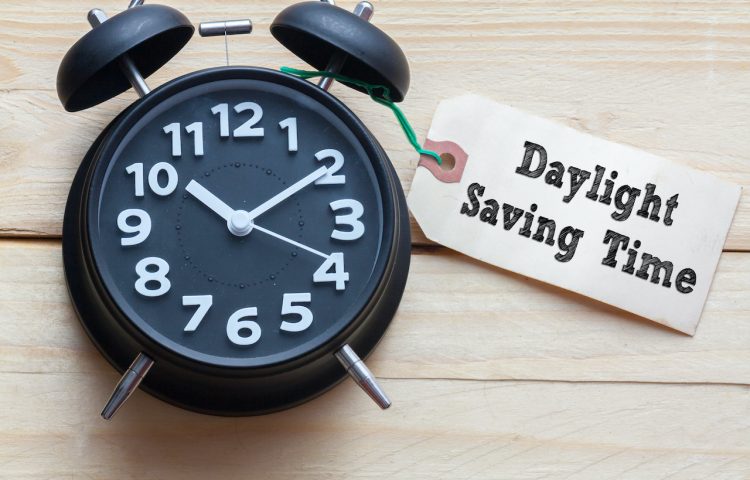Did you know that humans and mammals are guided by their circadian rhythm? Circadian rhythms are 24-hour cycles that are a part of the body’s internal clock, running in the background to carry out essential functions and processes that regulate sleep and other key bodily functions such as appetite and mood. An important and well-known circadian rhythm is the sleep-wake cycle.
The transition between Daylight Savings Time (DST) and Standard Time is characterized by more morning darkness and less evening light. When DST occurs, our circadian rhythm can be thrown off due to the change in the amount of light exposure we experience throughout the day.
Once the change happens, this can potentially affect your sleep-wake cycle, making you feel tired and less alert in the morning and more energetic at night. When your circadian rhythm is misaligned, this can contribute to sleep loss. While many of us can adapt to this time change, studies have shown that humans can never fully get accustomed to DST.
If DST has a great affect on you, here are some tips that can help you with making the transition a little easier:
Practice and Implement Good Sleep Hygiene: Sleep hygiene refers to practices that can influence your sleep for better or for worse. If you want to get the best sleep you can, try avoiding caffeine for up to four hours before your bedtime. Instead, try consuming caffeinated beverages in the morning or early afternoon. You should also refrain from consuming alcohol before going to bed. Alcohol consumption can cause sleep disruptions, which can lead to poor sleep quality. Lastly, avoid eating heavy dinners and snacking before you go to sleep because this can also disrupt your sleep cycle and negatively affect your circadian rhythm.
Establish a Consistent Sleep Routine: Going to bed and waking up at the same time every day is an effective way to practice good sleep hygiene. Making this a habit even on the weekends is essential because it allows you to keep up with your sleep-cycle. When your body is used to going to bed at a certain time and you get an efficient amount of sleep, you’re less likely to feel the effects of DST. Try to get at least 7 to 8 hours of sleep before and after transitioning to or from DST.
Gradually Alter Your Bedtime: A few days before DST, try setting your alarm at least 15-20 minutes earlier than your usual alarm clock. This can help you adjust with waking up at an earlier time. Once DST is in full effect, you can gradually start waking up to your normal alarm clock. This makes the transition a little easier and feels more natural.
By implementing these sleep hygiene practices to your nighttime routine, the transition from Standard Time to DST will be much easier on your circadian rhythm, which will lead to better sleep, less mood swings and a normal eating schedule. If there are any other tips that you think could be helpful with getting our bodies acclimated to DST, feel free to leave them in the comments. We’d love to know what helps you!

